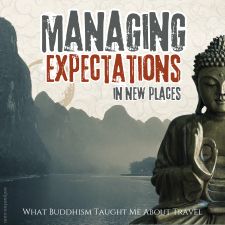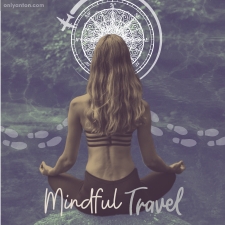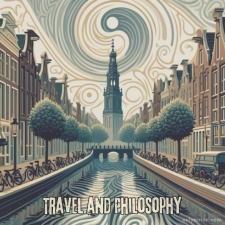Part Two of the What Buddhism Taught Me About Travel series
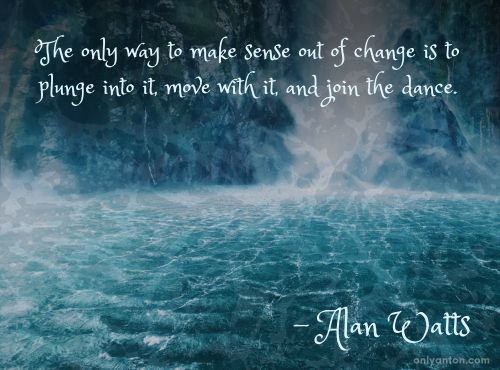
Introduction
Travel fills our minds with vivid images—sweeping landscapes, serene temples, and swarming markets. Yet when we finally arrive, reality often unfolds unexpectedly, challenging us to start managing expectations in new places. Buddhist teachings remind us that joy can be found in releasing rigid hopes and assumptions, leaving more room for wonder and discovery at every turn.
Expectations can profoundly shape our travel experiences, influencing how we react to unfamiliar sights, sounds, and customs. High or fixed expectations often lead to frustration or disappointment when things don’t align with what we’ve imagined. However, managing expectations—an essential aspect of Buddhist philosophy—can help us meet each new experience with curiosity and openness rather than judgment.
This post, part two of my series What Buddhism Taught Me About Travel, offers practical insights for managing expectations while travelling. Whether you’re a seasoned traveller or embarking on your first journey, these techniques will enrich your travels and deepen your experience of each place you visit.
Exploring Expectations
In the context of travel, expectations refer to the set ideas we hold about how our experiences should unfold. They are the internal standards we use to gauge the success, enjoyment, or value of our trips. While it’s natural to envision our travels in a positive light, expectations become problematic when they are rigid or unrealistic. They can lead to frustration and disappointment when things don’t go as imagined. Expectations are often weighty. They carry an implicit attempt to control inherently unpredictable circumstances—an approach that runs counter to the Buddhist principle of acceptance and letting go.
Expectations
High expectations can set us up for a narrow view of reality, making it challenging to appreciate what’s actually in front of us. When we “expect” perfect weather, flawless accommodations, or seamless logistics, we’re setting a standard that reality may fail to meet. We may also be closing ourselves off to the unknown surprises that often make travel memorable. A Buddhist perspective encourages us to recognize the impermanence of all things and to relinquish our illusions of control. In doing so, we learn to distinguish between expectations and aspirations or hopes.

Aspirations and Hopes
While expectations can impose rigid criteria on an experience, hopes and aspirations represent a more open-minded approach. Hoping for good weather or a pleasant journey, for example, implies lighthearted optimism. Such an approach allows us to adapt if things turn out differently. Expectations, however, carry a sense of entitlement. The sentiment “I expect the weather to be nice” implies that anything less will detract from the experience, creating dissatisfaction even if the overall trip is meaningful. By relinquishing the illusion of control and lowering our expectations, we make room for acceptance, adaptability, and resilience.
Travel is inherently unpredictable, and the best moments often arise from the unplanned. Adopting low or no expectations can transform travel into a process of discovery. Instead of seeking validation in how well the trip aligns with our mental script, we can embrace whatever comes as part of the experience. Staying open and flexible encourages a mindset of curiosity rather than judgment. It is a practice that makes every moment of the journey meaningful—regardless of the outcome. In this way, managing expectations doesn’t mean abandoning all hope. Instead, it’s about letting go of control and allowing travel to unfold naturally.
The Benefits of Having Low or No Expectations
Adopting a mindset of low or no expectations in travel opens up a world of possibility. Free from the constraints of pre-set standards, we can approach each experience with curiosity and openness rather than judgment. This approach transforms travel into an adventure of discovery, allowing each moment to reveal itself naturally. Without the pressure of living up to specific expectations, travel becomes a journey filled with freedom, spontaneity, and genuine appreciation.
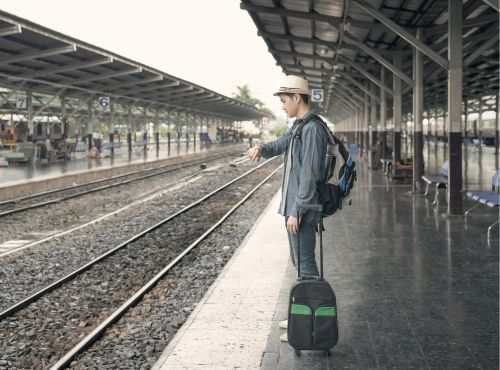
Embracing Uncertainty
One of the chief benefits of lowering expectations is the ability to embrace uncertainty. Travelling with minimal expectations encourages a mindset that welcomes surprises—both the pleasant and the challenging. When plans change, as they often do, those with few expectations find themselves less affected, treating unexpected events as part of the adventure. This flexibility enables travellers to adapt to an unexpected detour, a missed connection, or an unplanned cultural encounter. Embracing uncertainty doesn’t only make the journey easier. It also heightens our sense of wonder as we meet each new experience with openness and acceptance.
Appreciation for the Small Things
Low expectations also cultivate a greater appreciation for the small, unplanned moments. With fewer “must-sees” and “must-dos,” we are free to linger, observe, and savour the simplicity of each experience. Instead of focusing on ticking items off a list, we find beauty in the everyday details:
- The warmth of a local greeting.
- The aroma of street food.
- The simple pleasure of watching the world go by from a café.
These moments, which high expectations might otherwise overshadow, often become the most memorable parts of the trip.
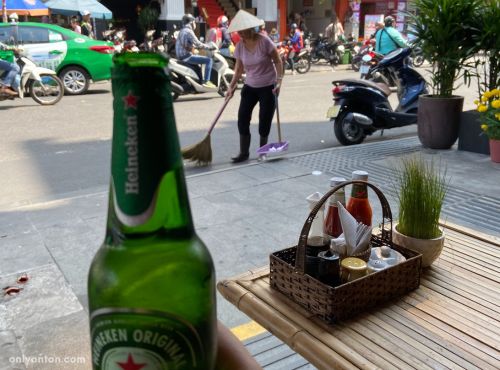
Genuine Adventure
Furthermore, travelling without the weight of specific outcomes creates room for a genuine sense of adventure. Without a strict agenda, we will likely say yes to new opportunities. We can join a local festival, wander a less-travelled neighbourhood, or sample a new dish. We approach each experience with an open heart, free from the constraints of “should be” or “must happen.” This openness to whatever the journey brings deepens our connection to each place and ourselves, fostering a sense of fulfillment that isn’t dependent on how closely reality aligns with our plans.
By letting go of the need for things to unfold a certain way, we create space for the unexpected joys of travel to find us. In this way, low or no expectations don’t diminish the experience. They enhance it and allow the journey to take on a life of its own.
Strategies for Managing Expectations While Travelling
When we set out on a journey, managing expectations doesn’t mean erasing all excitement. It’s about fostering a flexible mindset that can adapt to the surprises and challenges that inevitably arise. Here are some practical strategies for travellers looking to keep their expectations in check while remaining open to discovery and delight:
1. Set Realistic Goals for Each Day
Before each day begins, consider setting simple, achievable goals rather than a long list of “must-see” sights or activities. Instead of aiming to “do everything,” focus on two or three experiences that genuinely interest you. This strategy can reduce the pressure to check off every item on a list and create room for the unexpected. In travel, as in life, fulfillment often arises from fully engaging with fewer experiences rather than rushing through many.
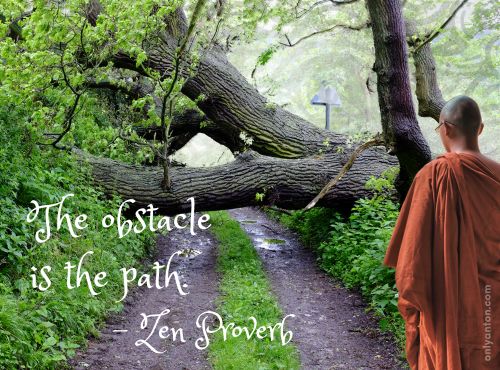
2. Embrace Spontaneity and Adjust on the Go
One of the joys of travel is discovering the unplanned. Aim to leave some parts of your day open, allowing room for serendipity. If your schedule is interrupted by a delay or detour, try to view it as an opportunity rather than an obstacle. A delay might lead you to a quiet café or a street you wouldn’t have otherwise found. Such moments often end up as highlights of the trip. Embracing spontaneity doesn’t mean abandoning all plans. It means knowing when to adjust them with an open mind.
3. Cultivate a Mindset of Curiosity
Approaching each experience with curiosity can help shift focus away from rigid expectations. Instead of thinking, “Will this meet my expectations?” try asking, “What can I learn or discover here?” Curiosity encourages us to approach each moment as a chance to learn something new or see the world from a fresh angle. When visiting a famous site, for example, focus not only on its appearance but also on its history, the people who gather there, and the atmosphere around you.
4. Practice Gratitude for Each Experience—Big or Small
Gratitude helps us find value in all experiences, whether they meet our initial expectations or not. Even a tiny moment of connection with a local or the taste of a simple dish can become meaningful when appreciated in its own right. Instead of comparing experiences to what you anticipated, try to find something valuable in each encounter or place. While later posts will delve more deeply into gratitude, this practice is especially useful in the context of managing expectations. Cultivating gratitude enables us to move beyond disappointments and embrace the journey with acceptance.
5. Balance Structure with Flexibility
Planning can be essential, but strict adherence to every detail can turn a trip into a source of stress. Aim to balance the structure of planned activities with open blocks of time. This approach allows for a relaxed pace where you can adjust plans as needed, making room for rest or unplanned adventures. For example, a long wait at a museum might lead to an impromptu conversation with other travellers or the discovery of a nearby park.

6. View Setbacks as Part of the Experience
Setbacks are inevitable in travel due to weather, delays, or closed sites. Buddhist wisdom teaches us that viewing life’s difficulties as opportunities for growth can bring unexpected peace and resilience. In the context of travel, when things don’t go as planned, see these moments as part of the experience rather than disruptions. Practicing this mindset encourages resilience and helps maintain a balanced emotional response, keeping frustration at bay and curiosity alive.
By adopting these strategies, travellers can cultivate a balanced mindset that enriches their journey, enhancing not only the destination but the experience of every step along the way. These approaches encourage flexibility, patience, and a sense of adventure, helping us navigate new places openly and easily.
Personal Reflections on Managing Expectations
In my travels, I’ve learned that adjusting expectations often opens the door to experiences I never could have anticipated. By letting go of rigid plans or preconceptions, I’ve found that even setbacks or changes can turn into moments of unexpected joy. Here are a few examples that have taught me the value of flexible expectations while travelling.
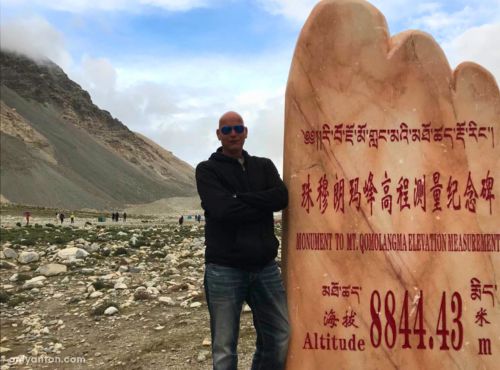
Everest Base Camp, Tibet
One experience that comes to mind is a trip to the remote mountainous region of Tibet, where I was hoping to see Mount Everest. After days of travel to reach Everest Base Camp, our group found ourselves enveloped in fog and mist, with no view of the mountain at all. My first reaction was disappointment. Here I was, at one of the world’s most iconic landmarks, and nature had decided to hide it from view.
Rather than dwelling on this missed “moment,” I let go of the expectation I’d held onto so tightly. I began to notice the quiet beauty of the mist itself, how it blanketed the landscape and added a sense of mystery. The experience transformed as I sat with locals, sipping tea, eating tsampa, and feeling a connection that went beyond the view I had come for. In this unanticipated moment, I felt the peace and satisfaction I had hoped to find, only in an entirely different form.
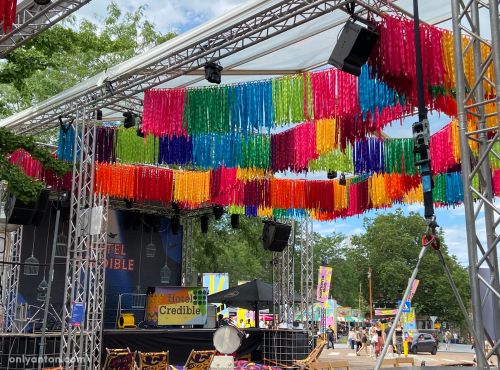
Nijmegen, Netherlands
I travelled to Nijmegen in the Netherlands in 2023, eager to visit the Limbourg Brothers Museum—a quaint spot dedicated to medieval artists I greatly admire. I had meticulously planned my visit, booking a hotel months in advance, expecting a peaceful exploration of art and history. However, upon arrival, an unexpected event awaited me: the city was in the midst of the Four Days Festival, one of the largest walking events in the world.
The quiet town I had envisioned transformed into a lively celebration filled with music, food stalls, and thousands of visitors. Initially, I was taken aback. This reality was different from the serene museum trip I had anticipated. Instead of letting disappointment set in, I decided to embrace the unexpected. Wandering the festive streets, I indulged in local beers, sampled delicious food, and enjoyed live performances. The museum visit was still fulfilling, but the unplanned immersion into the festival made the trip unforgettable. By letting go of my initial expectations, I found joy in spontaneity and discovered a new dimension of Dutch culture.
Shaoxing, Zhejiang, China
While teaching English in Shaoxing, China, I attended a colleague’s wedding. Accustomed to Western celebrations that continue late into the night with dancing and music, I was surprised when the dinner concluded around 8:00 PM and guests began to leave. Not ready for the evening to end, a few foreign colleagues and I decided to continue the festivities at a local bar.
What started as a quiet night quickly turned extraordinary when a group of Finnish delegates walked in. They were visiting to celebrate the twinning of their hometown with Shaoxing. Before long, we were sharing drinks, stories, and even songs—the Finnish mayor enthusiastically (and inaccurately) belting out the Canadian national anthem upon learning where I was from. It was one of those surreal moments where you pause and marvel at the unpredictability of life. I might have missed this incredible cultural exchange if I had stuck to my initial expectations of how the wedding would unfold. Instead, by embracing the unexpected, I forged unforgettable connections halfway around the world.
These experiences have taught me that managing expectations isn’t about suppressing excitement or abandoning plans. It’s about holding our expectations lightly, allowing space for the unexpected to enrich our journeys. By embracing flexibility and openness, I’ve found deeper connections, joy in spontaneity, and a more profound appreciation for the places I’ve visited and the people I’ve met. Letting go of rigid expectations doesn’t diminish the travel experience—it amplifies it in ways I never could have imagined.
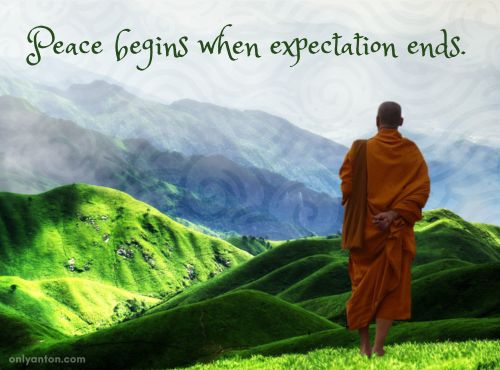
Conclusion
Managing expectations can be a transformative approach to travel, allowing us to navigate each experience with openness, curiosity, and adaptability. By embracing a mindset that’s less focused on rigid outcomes, we create space to appreciate the unexpected and to find joy in small, unplanned moments. When we reduce our expectations, we’re more likely to feel fulfilled, regardless of external circumstances.
As you consider your expectations for future travels, reflect on how flexibility and openness can shape your experiences. Rather than clinging to specific images or plans, try approaching each destination with a fresh perspective, allowing it to reveal itself in its own unique way.
In the next installment of this series, “Seeing Reality Where You Are,” we’ll explore the concept of embracing reality, even when it doesn’t align with our ideals, and how this can lead to more mindful, fulfilling journeys.
What About You?
What role have expectations played in your travel experiences? Have you ever had a journey turn out completely different than you anticipated? How did you feel, and what did you take away from it? Feel free to share your stories in the comments below. Join our community by returning to Only Anton for the next post in this series, and let’s continue exploring the ways that Buddhist wisdom can enhance our travel experiences.
Further Reading and Resources
Related Posts on Only Anton
- What Buddhism Taught Me About Travel: Introduction to this series, exploring how Buddhist principles can enhance mindful travel. Discover how Buddhist teachings can enrich your travel experiences with mindfulness, acceptance, and personal growth. Embrace the journey, not just the destination.
- Mindful Travel: Finding Meaning in Our Journeys: A guide to integrating mindfulness into travel, embracing spontaneity, and cultivating presence.
- Travel and Philosophy: Discover how the connections between travel and philosophy can inform our journeys and give us mindful insights into cultures.
External Resources
These resources will help you dive deeper into Buddhist concepts of expectation and mindfulness, offering guidance on cultivating an open, adaptable approach to travel and life.
Books
- Buddhish: A Guide to the 20 Most Important Buddhist Ideas for the Curious and Skeptical (2022) by C. Pierce Salguero: An accessible introduction to key Buddhist ideas, perfect for travellers seeking to integrate Buddhist perspectives into their journeys. Look it up at a local library, browse online, or buy your copy here.
- Zen and the Art of Motorcycle Maintenance (1974) by Robert M. Pirsig: Though not strictly about Buddhism, this philosophical novel explores mindfulness, quality, and presence in life, echoing themes relevant to mindful travel. Explore it at a nearby library, search the web, or buy it directly here.
- The Art of Happiness (10thanniversary ed.) by the Dalai Lama and Howard Cutler: A dialogue on how to cultivate inner peace and contentment, with perspectives on dealing with expectations and disappointment. Locate it at a library, check online options, or purchase it here.
Articles
- “The Simplicity of Discipline: Thriving Without the Baggage of Expectations” by Leo Babauta, Zen Habits: A concise article on the benefits of releasing expectations, particularly relevant to travellers seeking flexible, adaptable mindsets. Read the article here.
- “The Tyranny of Expectations” by Phillip Moffitt, Dharma Wisdom: This article explores how attachment to expectations can lead to suffering, advocating for a mindful approach to reduce the “tyranny” of expectations in daily life. Find the article here.
- “Your Expectations Are Killing Your Happiness” by Fuyu, Zen Buddhism: Fuyu discusses how expectations can undermine happiness by creating dissatisfaction and offers insights on how Zen Buddhism encourages a mindset of acceptance to foster well-being. Read the article here.
- “Letting Go of Expectations Is Good for Your Mental Health” by Robin D. Stone, Psychology Today (February 2022): Stone examines the mental health benefits of releasing expectations, showing how it can reduce stress and promote a more grounded, contented life. The article can be found here.
- “How to Manage Expectations” by Moshe Ratson, Psychology Today (September 2023): Ratson provides practical strategies for managing expectations, encouraging readers to set realistic goals and stay adaptable to improve personal satisfaction and resilience. Read about it here.
- “How Your Expectations Affect Your Enjoyment” by Alan Jern, Psychology Today: Jern explains the psychological mechanisms by which expectations shape our enjoyment of experiences and offers tips for setting expectations to enhance happiness. Learn about it here.
Websites
- Lion’s Roar: A website dedicated to Buddhist wisdom, with articles on mindfulness, letting go, and living with presence.
- Tricycle: The Buddhist Review: An online magazine offering articles on Buddhist teachings, with practical advice for integrating Buddhist wisdom into daily life, including travel.
